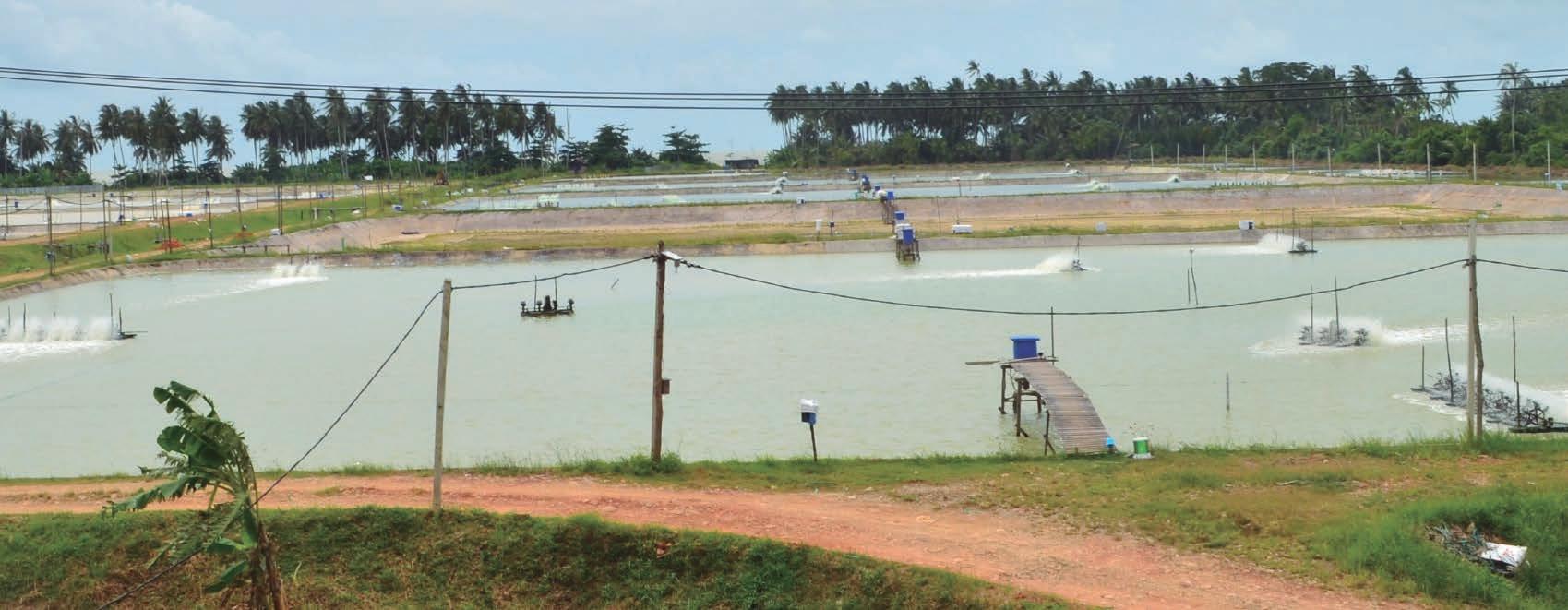
7 minute read
AQUACULTURE ECONOMICS, MANAGEMENT, AND MARKETING
Is Developing a Brand Worth the Time and Money for your Aquaculture Business?
By: Carole R. Engle, Ph.D., Engle-Stone Aquatics LLC*
Consumers today are faced with a host of differentiated products of all types. In markets where there are many similar products, each supplier seeks ways for their product to stand out and attract consumers to out-compete other similar products. The food sector is no exception to this trend. Branding a product can be beneficial, but it also can be quite expensive in terms of time and money. Attempts to develop a brand have not always resulted in the anticipated boost in sales.
What is a brand and what can it do for an aquaculture company? The simplest definition of a brand is that it is a way to identify a specific product sold in a way that differentiates it from other similar products. A brand can be developed by and for a specific company, an organization, or a governmental agency. Jersey Fresh was an early state-level brand developed for New Jersey farmers. Some state branding programs, such as that of Florida Oranges, focused on specific products grown in the state. In aquaculture, some successful brands have been developed by aquaculture associations. A leading example is that of U.S. Farm-Raised Catfish, a brand developed by The Catfish Institute that provides a vehicle for generic advertising of catfish products. In a very different segment of aquaculture, the Arkansas Bait and Ornamental Fish Growers Association developed the Arkansas Baitfish: Cer-
tified Farm Raised brand, along with tag lines such as “Safe Bait from the Natural State.” The Arkansas Baitfish brand is managed by the Arkansas Department of Agriculture as the third-party certifier of the farm-level testing that verify that the fish sold under the brand are free of important diseases and aquatic nuisance species. Individual farms can also develop their own brands, such as Taylor Shellfish Farms. No longer just a farm name, the Taylor Shellfish brand includes their line of oyster bars and other products.
A brand, however, is much more than the name of an aquaculture farm. A name has become a brand when customers seek out and ask for products specifically from that particular farm or company. When an individual plans to buy a “John Deere” instead of a “tractor,” for example, or a customer asks when Limestone Springs trout will be available, those company/ farm names have become brands.
Comments related to how brands will solve various types of marketing or price competitiveness problems are heard frequently, but unfortunately too many people equate a logo or catchy name with a brand. While a good brand may be accompanied by a logo or memorable name, neither constitutes a brand.
What a successful brand does for an aquaculture farm is to differentiate its products from other, similar products. An aquaculture farmer who sells fish or shellfish that are indistinguishable from those sold from other farms is selling a commodity into a market that purchases from many similar farms. If the fillets sold are very similar to each other, why would anyone pay a higher price for those from one specific farm? A farm that has successfully developed brand recognition, however, will have customers that specifically request product from their specific farm. The question that
an aquaculture producer must answer when considering developing a brand is this: what attributes can the farm provide in their product that separate their fish or shellfish from others in a way that customers desire and for which customers are willing to pay a higher price? That is the core marketing question for a farm that seeks to provide a product at a higher price than that received by other farms. The brand, then, is the vehicle for the farm to communicate to their customers those attributes that are most desired.
A brand must embody the values and attitudes desired by customers and reinforce the quality and consistency that makes customers willing to seek out that product and pay a

higher price. Seafood consumers desire fresh seafood of high quality and are fearful of food safety, especially of raw seafood. More and more consumers expect seafood to be supplied in an environmentally and socially responsible manner. Thus, critical attributes of food products in today’s markets include its freshness, taste, safety, and that it has been produced responsibly. The challenge is how to convince buyers that the products sold are those that can be trusted to deliver the desired attributes.
Developing a successful brand requires years of commitment. Advertising and promotion, by themselves, are not sufficient. One poor quality fillet sold under a brand that emphasizes taste, freshness, and quality, will damage the reputation of the brand for many years. The key to successful branding is not just knowing which attributes consumers seek and desire, but meeting those expectations with each and every fillet or oyster sold. The entire farm business must live up to the standards expressed and embodied in the brand and it must do so each and every day.

Brand development begins with the business plan in which the core values of the business are described. What is it that the business wishes to be known for? Consistent, timely delivery of the freshest, highest quality product on the market? Customer service that exceeds that of all other suppliers, bar none? The business planning process must include an assessment of how well the farm currently meets those expectations and how it will deliver the expected quality, freshness, and safety each and every day. For example, if the brand description emphasizes the highest quality, but the fish are delivered in a dilapidated truck by an employee still in his/her pond clothes, it might be time to think about investing in a new truck and requiring the employee to change clothes before making deliveries. It is essential to always present and embody the core values of the farm and the brand. The entire business plan must be geared towards fulfilling the expectations set out in the core values and vision statement. The production, product distribution, and marketing systems must be capable of meeting customer expectations with every fillet or shellfish sold.
Over time, as a brand develops for a farm that consistently delivers what has been promised, customers develop loyalty to that farm. The

holy grail really is customer loyalty, not having a “brand.” A loyal customer who routinely asks for and seeks out the fish produced on a specific farm is one who will pay a somewhat higher price and will also likely recommend fish from that farm to friends and neighbors. Such word-of-mouth endorsement provides on-going reinforcement of the key attributes associated with the fish or shellfish sold by the farm.
A successful brand takes many years to develop, but once developed has monetary value. Successful brands may be imitated or even stolen outright by someone seeking to gain a foothold in a particular market. It is essential to register a trademark for the brand early on to ensure legal protection if and when it becomes successful and a target for theft and fraud. Farms with successful brands must further devote resources to monitor attempts to imitate or steal the brand. Developing a formal brand may not be necessary for every aquaculture farm. The steps involved, however, in thinking through the core values of the business and how to live up to them in every phase of the business, day in and day out, will create the kind of reputation that will contribute to long-term marketing and financial success for the aquaculture farm, with or without a formal brand.
Additional Resources available under direct request to the author. Carole R. Engle, Ph.D., Engle-Stone Aquatics LLC
Carole Engle holds a B.A. degree in Biology/Rural
Development from Friends World College and M.S. and Ph.D. degrees from Auburn University where she specialized in aquaculture economics. Dr. Engle is a past-President of the U.S. Aquaculture Society and the
International Association of Aquaculture Economics and Management. She is currently a Principal in Engle-Stone Aquatic$ LLC, and can be reached at cengle8523@gmail.com







